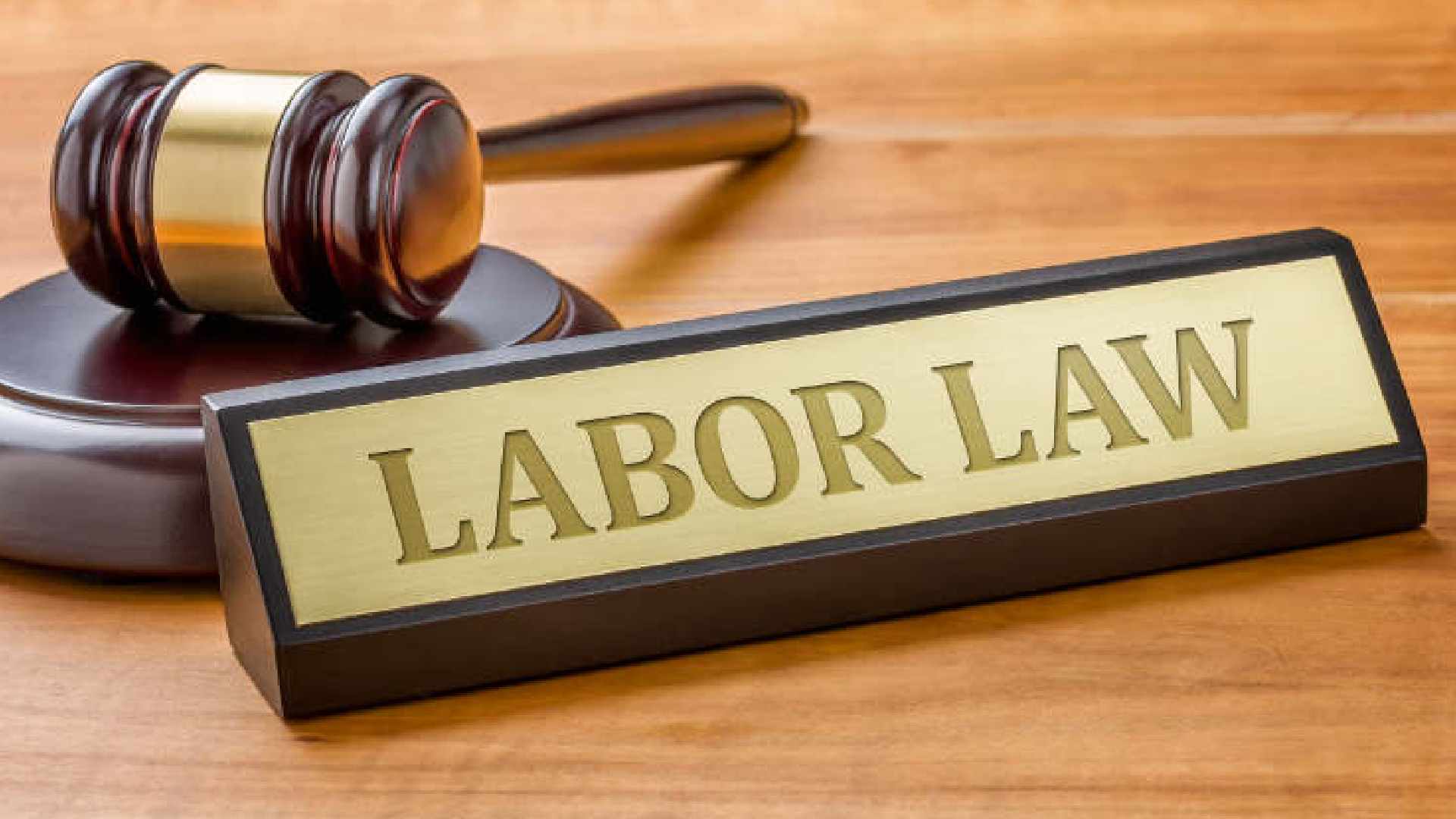Every nation in the globe has a unique political structure that serves a variety of socially beneficial purposes. In the case of this tiny island nation, one of the most significant is the Ministry of Labor Egypt. The purpose of this organization is to control how employees and employers interact on the job. Plus, to advance professional development. They are also in responsibility of defending the rights and interests of employees.
In this article, we will tell you all you need to know regarding the ministry of labor Egypt. The duties and obligations of the entity will be one of the subjects covered. Moreover, we will explain to you the rights, obligations, and safeguards that apply to workers in this country. You will be in a better position to comprehend the function and administration of the Ministry of Labor as a result.
Overview of the Ministry of Labor

The ministry in responsible for labor relations, emigration of Egyptian employees, and labor is the Ministry of Manpower. The following Egypt Employment Law primarily govern employment issues in Egypt:
- Law N° 47 and N° 48 1978 – Governing civil servants and public sector employees.
- Law N° 203 1991 – Handling unique needs for workers in the state’s public business sector.
- Decree N° 12 2003 – Governing how companies and employees interact in the private sector.
As a supplement of the Labor Law Egypt, a number of ministerial decrees are thought to be helpful. The articles of the Egyptian Civil Code have effect to the contract of employment when there are no explicit laws that apply to a given situation in a work relationship.
Everything about employment contracts as per labor law Egypt
Companies doing business in Egypt must be proficient in Egyptian labor laws. They must determine which corporate structure best aligns with their long-term goals.
The common choice in Egypt is to establish an LLC as a subsidiary. This, in part because of the liability protection it provides the parent company and its owners, founders, and partners. The General Agency for Investment and Free Zones (GAFI) must approve the subsidiary and it must abide by Egypt’s Companies Law and Investment Law. If the Financial Regulatory Agency wants to participate in the capital markets, it needs authorization.
Additionally, the Labor Law and the Regulations on Social Security, which establish statutory minimums and entitlements, will govern the company’s employment relationship with its employees. These are crucial factors to take into account when hiring, integrating, and drafting contracts with new employees. When the best candidates have been found for your company through our EOR recruitment networks, we take over and help you navigate Egyptian employment contracts.
According to the ministry of labor in Egypt, general considerations include:
- Before employment begins, an employment agreement must be negotiated, drafted in Arabic, and distributed in duplicate to the company, employee, and regional office of the social security authority.
- The third copy goes with the appropriate labor authority for handling work permits in the event of overseas personnel.
- Likewise, the agreement may be for a set period of time or be open-ended and indefinite.
- The contract must specify any probationary term, which cannot last more than three months.
- Also, the contract should also contain comprehensive information about the employer, the employee’s place of employment, the employee’s vocational and educational background, the type of work, salary, and pay schedule.
Types of employment contracts
The most common types of contracts according to the ministry of labor in Egypt are:
- Indefinite contract: They are generally not subject to dismissal unless there is a legitimate or serious reason as defined by the Labor Law, and they have no set expiry date. If the employee has been working for fewer than 10 years or more than ten years under an indefinite contract, the company must provide the employee 3 months’ notice.
- Short-time: The start and finish dates are agreed upon by both parties; but, if they also agree that work will continue after the end date, the agreement becomes indefinite. These agreements may also tie to a particular undertaking. Foreigners, however, are exempt from this. With the same employer, short-term contracts can extend for a total of five years. Employees who desire to leave their jobs earlier must notify the employer in writing. If an employer dismisses a worker before the end of the contract, they must pay them for the remaining time under the contract and give them compensation or leave time.
Working hours and holidays in Egypt Labor Law
For a typical 40-hour day, the limit is eight hours every day, or up to 48 in a 6-day workweek. According to the Labor Law, workweeks must be structured so that employees have at least a day of downtime following a maximum of 6 working days. No worker should work for more than 5 hours without a break, and each break should last at least one hour. In broad terms, meal and rest intervals are not part of the working hours in Egypt.
According to the Egypt ministry of labour, public holidays include:
- Orthodox Christmas Day
- January 25 Revolution Day
- National Police Day
- Sham Ennessim
- Sinai Liberation Day
- Labor Day
- Eid al-Fitr
- Uprising in Egypt
- Revolution Day
- Eid al-Adha
- Islamic New Year
- Armed Forces Day
- Prophet’s Birthday
Notice period and probation period
If working for less than 10 years, employees receive two months’ notice, and if they were working for more than ten years, three months’ notice.
There is no probationary term unless it is expressly appearing in the employment contract, according to the ministry of manpower. It cannot go beyond three months. Even if the employee signs a contract for a trial period of less than 3 months, the employer may only appoint the employee on probation once. In this situation, the employer has no right to execute a new agreement for the remaining time. If the position is different, the company may hire the worker under a second contract requiring probation.
While the employee is ill, the period will be over. If the worker receives a call to active employment duty within this time, probation also qualifies as having been effective.
The employer is free to terminate the job within the 3-month trial period without incurring any costs. In this instance, no statutory notification is necessary.
Leaves in the Labor Law Egypt
According to the ministry of labor Egypt, the leaves are:
- Maternity leave: Following suggestions made by the Egyptian Senate in January 2022, the 90-day statutory maternity leave will be raised to four months. Although they have a maximum of three maternity leaves throughout their working lives, mothers should take at least 45 days off after giving birth.
- Sick leave: Employers have the right to a maximum of ninety days of sick leave at 75% of salary and up to an additional 90 days at 85% of salary. This, as long as the absence is supported by a medical certificate.
- Yearly leave: After a year of employment, employees have a right to 21 working days with payment as per the ministry of labor Egypt. Employees over 50 and those with over ten years of service with multiple employers each receive 30 days. After six months of employment, days off are prorated.
- Casual leave: In the event of an emergency, the employee has the right to casual leave. The employee’s annual leave will decrease by the number of days taken on casual leave, which cannot exceed 6 per year.
- Pilgrimage leave: Regarding religious holidays, the ministries of Egypt state that a worker who has been at work five years in a row has the right to leave with pay for a period that does not exceed one month in order to complete a pilgrimage. This right, however, may only be exercised once throughout the entire period of employment.
- Study leave: Collective labor agreements or employer rules should establish the terms and conditions about study leaves its employees receive. This, along with the entitlement of a worker to use their annual leave as study leave; providing that the employer receives notice at least 15 days ahead of the leave.
Minimum wage in Egypt
Depending on the specifics of the agreement at hand, a payment may be determined as a proper sum for every assignment completed, at a daily or hourly rate, or depending on an easily quantifiable quantity of labor completed.
According to Egyptian civil law, the wage must be according to the usual standards of the profession and the location of the activity.
In the absence of any discernible common practice or custom, a court will determine the appropriate remuneration. For the intent of Egyptian law, compensation will be a component of the wage. This, together with any bonuses or incentives given to the employee. It also includes any other sums that become a tradition during the course of employment.
People who work in cafes, hotels, restaurants, and coffee shops might not be eligible to compensation beyond the tips they get. The decision of whether or not to pay a separate wage is left up to the employer. Unless there are specific regulations stating that they should be considering the nature of the activity, donations do not fall under this category.
It is important to know that that if an employer and employee decide to pay the latter’s compensation depending on their performance or relying on the commission, the amount they receive each month must adhere to the minimum wage rules.
Furthermore, the legislation states that a worker will be eligible for their entire compensation even if they arrive at the workplace on time and are ready to complete their tasks but are unable to do so due to the employer’s conduct.
Lastly, if it turns out that an employee used their vacation time to work for another company, the employer has the right to terminate their employment. Plus, demand reimbursement for any wages received in lieu of the worker’s salary.
The vision and goals of the Egypt Ministry of Labour

The ministry of labor Egypt has the following objectives:
- Organizing the paths that lead to the stability of professional relationships.
- Achieving fair and suitable working conditions.
- The completion of studies that ensure the protection of the active population against workplace accidents and professional illnesses.
- Suggest using methods aimed at reducing these risks.
- Employing human resources when it affects themselves.
- Creating employment policies and organizing them both domestically and internationally.
- Follow-up on the hiring of qualified workers.
- Regulate foreign workers’ employment within the nation.
- Developing the national education policy, which entails incorporating them.
- Create the national education policy.
- Review the plans and programs that carry out this policy.
- Developing projects for professional training plan financing.
- Conducting field research and studies.
- Creating research and studies from which estimates of the demand and supply for labor appear.
- Study the pay structures for the nation’s many professions, industries, and activities.
- Establishing and expanding a network of information that links the Tribunal General’s departments with one another and with the work distribution policies set by Egyptian governments.
- Creation of a data and information platform for quick decision-making on sponsorship, employment, and training activities.
All about the employment of expatriates in Egypt
Foreigners have just recently begun arriving here to work, especially in the construction sector. Despite Egypt’s low unemployment rate, there is still a big need for unskilled laborers. As well as some higher-skilled jobs, especially in the energy industry.
Recently, the government have been streamlining the rules governing visas along with other legal documents necessary for foreigners to operate in Egypt. If you are not working for a huge corporation, you will most likely need to engage an Egyptian visa agency to handle your work visa. Smaller businesses may consequently find it challenging and expensive to hire international staff.
Foreign nationals who want to work in Egypt can apply for a variety of visas. Each of them have its own set of educational, professional, and work experience requirements. It is significant to remember that some credentials only have validity in the nation in which they were obtained. Therefore, it could be essential to have extra international credentials assessed by a government agency in Egypt. Available visas are:
- Work visa.
- Freelancer visa.
- Residency visa.
Latest changes to the new Egypt labour law
The Ministry of Planning and Economic Development presented ruling no. 103 of 2022 establishing a higher minimum wage for workers in the private sector. As well as the annual constant raise, effective as of 1 January 2023. This is taking place in response to the historically significant modification to the minimum monthly salary of those working in the private sector in 2021, in which the minimum wage level remained at EGP 2,400.
Employers are responsible for ensuring proper adherence to the NWC and labor law’s requirements. In a nutshell, if employers determine that 7% of the basic income is less than 3% of the subscription salary, they still have to pay the difference between the two figures. If it is the other way around, employers have a duty to make sure that the basic requirements of the labor law are in place.

Learn more about other topics regarding the ministry of labor and workers in Egypt in our insights section.


